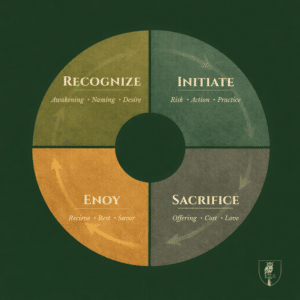Hurt feelings are part of every relationship. And even when it’s not on purpose or in malice, there is still pain in not receiving the care or respect we desire. Even still, our wounded self is called to love.
Photo by Kelly Sikkema on Unsplash
In the normal course of relationships, it is quite common to hurt each other – a passing comment comes out wrong, we forget a meaningful event, or we simply don’t come through for the other as expected.
We know our hearts and we don’t intentionally seek to hurt those we’re in relationship with. But it happens and we seek forgiveness.
This is harder on the receiving end of an offense. How do we respond when we have been wounded?
If we are honest, our first response is probably not forgiveness. And maybe this is good.
Rushing to “forgive” may actually shortchange the process and limit the deeper healing available.
When we are wounded, it is good to first acknowledge the wound – to ourselves and to the one who caused us harm.
I’m hurt.
This is not blaming the other or hyper-focusing on how bad the offense is.
It simply communicates the wound matters and needs to be addressed for relational healing.
Ideally, the other acknowledges this and we can work together toward making amends.
However, the other is not always willing or able to do this – likely due to unhealed wounds in their own story.
In this case, we must be careful not to let our wounded self inflict more harm.
Our wounds are never justification to wound others.
While we cannot force others to care for our wounds, we still have that responsibility ourselves.
And like Christ, we are called to love even when it is not fair.
Big or small, our hurt feelings matter. But we cannot forget to love even when we are wounded.



One Comment